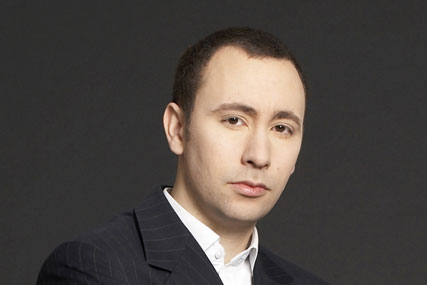As political posters go, the image of a glowering Gordon Brown accompanied by the slogan 'Step outside, posh boy' was one of the more striking executions of the past few years.
Those who fell for The Guardian story about Labour's aggressive approach to the forthcoming election campaign, failed to notice the date on the masthead: 1 April.
Ironically, the mocked-up poster was more memorable than the genuine ads produced by Labour and the Conservatives during their initial skirmishes prior to the campaign proper.
Now that Gordon Brown has formally called the election for 6 May, the battle begins in earnest. While the direct impact of the parties' advertising may be marginal, there is a clear case to argue that, in 2010, the marketing of the protagonists is more important than any election of recent times.
The reasons for this are not directly related to the advertising industry, although the recruitment of M&C Saatchi to the Conservatives' cause does add a delicious spice to a contest in which Labour has retained the services of Saatchi & Saatchi.
What has almost come to matter most to those with an interest in the UK's economic recovery is not necessarily who wins, but simply that somebody does.
As the Conservative Party's once-commanding lead in opinion polls has dwindled, albeit with occasional signs of recovery, the sense of nervousness among businesspeople and in the City has become almost palpable. That is why the odds on a second general election in 2010 are narrowing.
The prospect of a hung parliament is one that dominates the conversations I am having at the moment with captains of industry. They worry that such an outcome would delay the tough and urgent decisions about public spending cuts that are necessary if the government's recent borrowing binge is to begin being addressed.
They are also fearful that decisions critical to the future of Britain's competitiveness in, for example, the area of corporate taxation, will simply be fudged by an administration unable to find a consensus on contentious issues.
In the City, there is another direct cause for alarm: the effect on sterling of a hung parliament (or, equally, a new government that does not spell out in short order, word by word, how it intends to tackle the budget deficit). The major credit-rating agencies have indicated that for the UK to retain its prized triple-A rating, firm plans will need to be outlined soon after the election.
With the economy providing such a potentially pivotal battleground for this election campaign, the main parties will be focusing their advertising efforts on trying to convince voters of their opponents' lack of ability to manage the country's recovery.
For Labour, that will mean targeting George Osborne, the shadow chancellor, who divides opinion on the doorsteps. The danger of that approach is that Osborne has scored a significant tactical victory in the row over Labour's plans to increase National Insurance and is finally winning firm support from business heavyweights.
Allies such as Sir Stuart Rose, Justin King and Paul Walsh are powerful ones for the Conservatives to have when they are seeking to promote an image of economic competence.
The Tories will train their artillery firmly on the prime minister, who infamously hailed the end to boom and bust during his decade at the Treasury. That, as we now know, was spectacularly misguided, which is why this is a general election that, for the City, really does matter.
Mark Kleinman is City editor at Sky News and a columnist for The Times.
30 SECONDS ON... George Osborne
- George Osborne was born in 1971. He was christened Gideon but changed his name to George at the age of 13. As the eldest son of Sir Peter Osborne, co-founder of fabric and wallpaper designers Osborne & Little, he is heir to his father's baronetcy.
- He was educated at St Paul's public school in London and Magdalene College, Oxford. While at Oxford he was a member of the Bullingdon Club, a socially exclusive private dining club known for its unruly behaviour.
- He joined the Conservative Research Department in 1994 and succeeded Martin Bell as MP for Tatton in 2001.
- Osborne was appointed shadow chief secretary to the Treasury in 2004 and promoted to shadow chancellor after the 2005 election.
- The same year he managed his close friend David Cameron's successful campaign for the leadership of the Conservative Party.
- Osborne is married with two young children. His wife, Frances, the daughter of former Conservative minister Lord Howell, is a writer.


